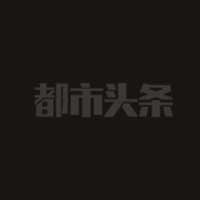
道德经连载
英译 樊功生
第十九章
绝圣弃智,民利百倍;绝仁弃义,民复孝慈;绝巧弃利,盗贼无有。此三者以为文不足,故令有所属;见素抱朴,少私寡欲;绝学无忧。
Chapter 19
Cleverness should be abandoned, so citizens would benefit immensely; benevolence should be abandoned, so citizens could restore filial piety; crafty profits should be abandoned, so theft would vanish. All these three, cleverness, benevolence and profitability, are insufficient for setting rules and regulations, so people's thinking needs a solid basis. Stay with nature, avoid desires, and abandon conventional knowledges, then there will be no more worries.

第二十章
唯之与阿,相去几何?美之与恶,相去若何?人之所畏,不可不畏。荒兮,其未央哉!众人熙熙,如享太牢,如春登台。我独泊兮,其未兆;沌沌兮,如婴儿之未孩;傫傫兮,若无所归。众人皆有余,而我独若遗。我愚人之心也哉!俗人昭昭,我独昏昏。俗人察察,我独闷闷。澹兮,其若海;飂兮,若无止。众人皆有以,而我独顽且鄙。我独异于人,而贵食母。
Chapter 20
How far apart is between submission and domination? How far apart is between beauty and ugliness? One should fear what everyone fears. It has always been this way. Such exuberant crowds, as if attending banquets, or appreciating the spring on a terrace. Meanwhile, I enjoy a quiet moment with myself, totally oblivious with the surroundings. An utter confusion, like an infant baby; a complete exhaustion, like a drifter without a home. Everyone has something saved, whereas I do not. I have the heart of a fool indeed! Others all live well, whereas I remain bemused. Others manage to be smart and demanding, whereas I stay simple and honest. What a confusion, vast like sea, swirling constantly. Others all possess some practical trades, whereas only I possess none. I become a different man because I have obtained Tao.

第二十一章
孔德之容,惟道是从。道之为物,惟恍惟惚。惚兮恍兮,其中有象;恍兮惚兮,其中有物;窈兮冥兮,其中有精,其精甚真,其中有信,自今及古,其名不去,以阅众甫。吾何以知众甫之状哉?以此。
Chapter 21
The formation of great virtue is determined by Tao, which is vague and indefinite. Despite its vagueness, however, it has definite images, and definite objects. From its profound depth, it has an essential spirit, which is most authentic, and verifiable. Since the oldest time, its name never vanished, and it was the origin of all things. How would I know it’s the origin of all things? From the Tao.
